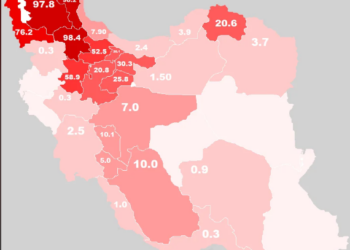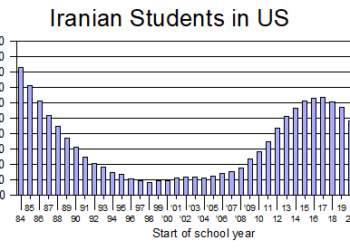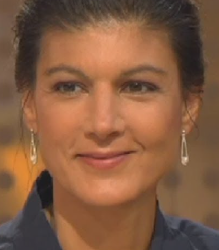January 22, 2021

Since freeing Australian academic Kylie Moore-Gilbert in November in a prisoner exchange, the Islamic Republic has busily pursued a propaganda campaign seeking to justify its claim that she was a spy for Israel.
The main evidence for this charge appears to be that she is married to an Israeli. Moore-Gilbert, meanwhile, has maintained stoic silence for the two months since she was freed except for a brief statement issued immediately after her release in which she thanked her supporters and expressed love for Iran. “I have nothing but respect, love and admiration for the great nation of Iran and its warmhearted, generous and brave people.
I came to Iran as a friend and with friendly intentions, and depart Iran with those sentiments not only
The Islamic Republic, however, expressed no such sentiments for Moore-Gilbert. Soon after her release, state television ran a nearly 10-minute segment that featured several images purporting to show Moore-Gilbert traveling, posing on her wedding day and with friends and family, in the fullest airing so far of Tehran’s justification for imprisoning her on espionage charges.
Moore-Gilbert, 33, spent 804 days in custody until she was exchanged November 26 for three Iranian prisoners serving sentences in Thailand for plotting bomb attacks. She and the Australian government have maintained that the allegations of spying are baseless, and no evidence of her alleged crimes has ever been presented publicly.
The video report claimed that Moore-Gilbert had been recruited by Israeli military intelligence, which placed her at Cambridge University in England, and linked her to several former Israeli army officers and Mossad.
The television report presented no evidence for the allegations but featured pictures of Moore-Gilbert visiting sites in Jerusalem, in a wedding dress and lined up alongside other women in green fatigues in what the voiceover claimed was a training camp in Haifa.
It also featured photocopies of her passport and one said to belong to her Israeli husband. “As per her training and to avoid any threat, she went to all places where tourists visit and made calls from those areas and took photographs,” the report said.
“She was told to hide her travels to Israel and also her contacts with Israelis.” Jasim Husain, a former Bahraini MP, is accused in the report of teaching Moore-Gilbert Arabic and Farsi, and offering to help her spy on Shia exiles in Iran. “The story is unconvincing to anyone with basic knowledge,” Husain told The Guardian of Britain.
Husain is a former member of Al-Wefaq, the main party representing Bahrain’s marginalized Shia community. He said he had met Moore-Gilbert at an academic conference in Brisbane in the weeks before her 2018 visit to Iran, during which she was arrested. He believed it was the meetings Moore-Gilbert held in Iran with Shia exiles from Bahrain that sparked concerns in the country’s security establishment.
Diplomatic sources told The Guardian the subsequent Iranian propaganda campaign had been designed with two audiences in mind domestically, to shore up public opinion that the prisoner swap deal was a diplomatic victory for Tehran; and, internationally, to try to justify Moore Gilbert’s imprisonment. Moore Gilbert is a lecturer in Islamic studies at the University of Melbourne.


















